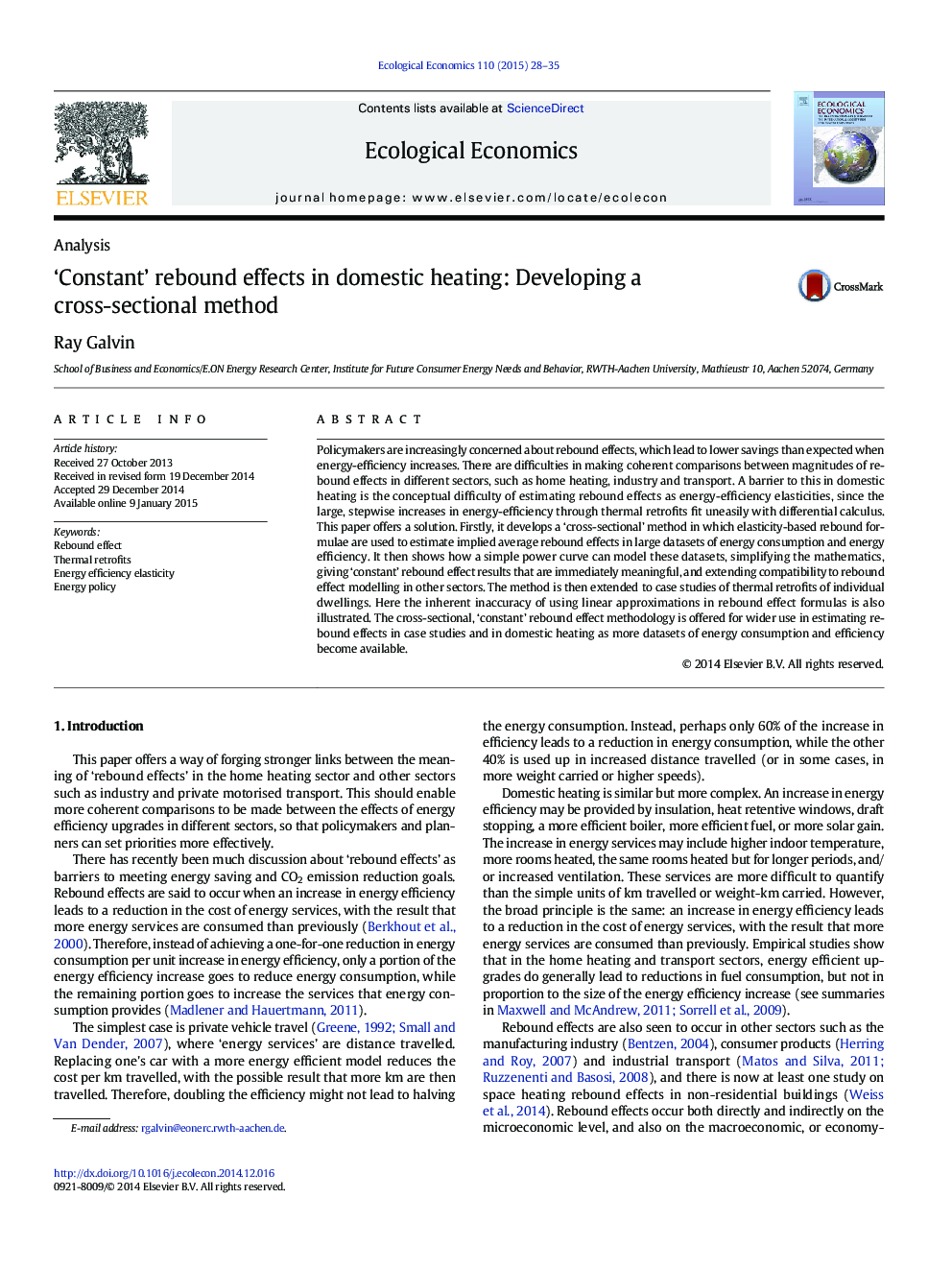| کد مقاله | کد نشریه | سال انتشار | مقاله انگلیسی | نسخه تمام متن |
|---|---|---|---|---|
| 5049465 | 1476369 | 2015 | 8 صفحه PDF | دانلود رایگان |

- Energy policy needs coherent rebound effect definitions between sectors.
- Current definitions in the home heating sector are widely variant.
- A more mathematically robust approach is developed for this sector.
- This simple exponent model is tested in case study and nationwide settings.
- It could provide a unifying link for comparing rebounds in various sectors.
Policymakers are increasingly concerned about rebound effects, which lead to lower savings than expected when energy-efficiency increases. There are difficulties in making coherent comparisons between magnitudes of rebound effects in different sectors, such as home heating, industry and transport. A barrier to this in domestic heating is the conceptual difficulty of estimating rebound effects as energy-efficiency elasticities, since the large, stepwise increases in energy-efficiency through thermal retrofits fit uneasily with differential calculus. This paper offers a solution. Firstly, it develops a 'cross-sectional' method in which elasticity-based rebound formulae are used to estimate implied average rebound effects in large datasets of energy consumption and energy efficiency. It then shows how a simple power curve can model these datasets, simplifying the mathematics, giving 'constant' rebound effect results that are immediately meaningful, and extending compatibility to rebound effect modelling in other sectors. The method is then extended to case studies of thermal retrofits of individual dwellings. Here the inherent inaccuracy of using linear approximations in rebound effect formulas is also illustrated. The cross-sectional, 'constant' rebound effect methodology is offered for wider use in estimating rebound effects in case studies and in domestic heating as more datasets of energy consumption and efficiency become available.
Journal: Ecological Economics - Volume 110, February 2015, Pages 28-35